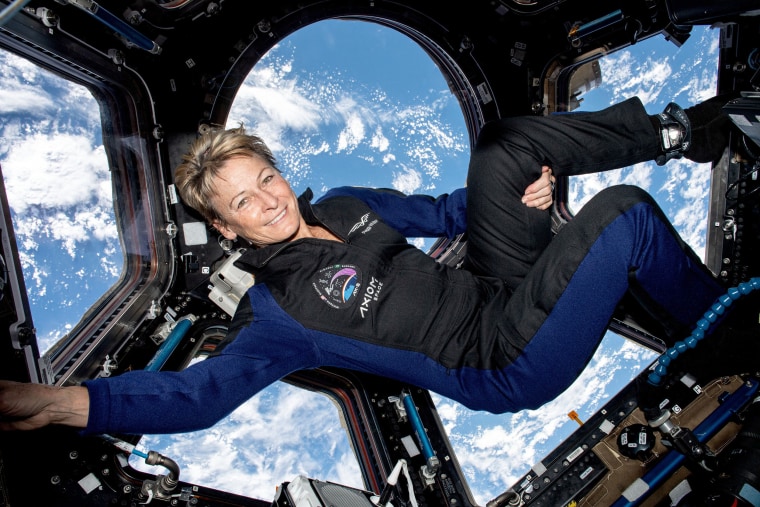Dr. Peggy Whitson’s 37-year aerospace career has been filled with a roster of firsts: the first female commander of the International Space Station, the first female chief of NASA's Astronaut Office, the first International Space Station science officer, the first woman to complete 10 space walks, and more recently with Axiom, the first woman to command a private space mission.
That accolade elevates her to yet another record: She’s the only American astronaut – male or female – to log 675 days in space, an endurance breakthrough.
What might come as a surprise is that despite these achievements, she didn’t actually make her space flight debut until the age of 42.
When she earned her Ph.D. in biochemistry, Dr. Whitson applied to NASA’s astronaut training program four times over nine years and was rejected. After her fifth time applying, she finally made it.
“I never let rejection hold me back,” she wrote in March. “Instead, I used the time to explore opportunities to strengthen my skills and grow.”
Dr. Whitson was honored in the innovation category of Forbes and Know Your Value’s third annual “50 Over 50” U.S. list, which came out on Aug. 1. The list spotlights dynamic women over the age of 50 who have achieved significant success later in life, often by overcoming formidable odds or barriers.
“Looking back now, I can say it was those 10 years that made me qualified to have the experiences and be ready to be selected as the first female commander of the ISS, to be selected as the first female and non-military chief of the astronaut office,” Dr. Whitson recently told Forbes and Know Your Value. “All of these things were because of the teamwork, the leadership experiences that I gained during those 10 years of not being selected.”
Dr. Whitson Today has since retired from NASA and is now director of human spaceflight at Axiom Space, where she is laying the groundwork to build the world's first commercial space station.
While the purpose behind Axiom’s venture is to expand access to space for individuals, governments, scientists and universities, Dr. Whitson – a life-scientist by training – hopes to see the development of medical therapies using microgravity as a tool.
“On my most recent mission [with Ax-2], we were looking at cancer cells – breast cancer, colorectal and epithelial cancer cells – and looking at a particular drug that we would use to try and treat those cancers,” she explained. “And the reason we use zero gravity is the cancers actually grow faster there, so any treatments that we use on drugs have to work very well, otherwise the cancer growth will overtake them.”
Over the course of her career – which included three long-duration missions, one lasting nine-and-a-half months – Dr. Whitson used her orbit time to conduct scientific experiments for NASA, going so far as to use herself as a test subject.
“I've done lots of investigations looking at various different effects on bone, muscle, brain, everything … We test [ourselves] before flight, during the flight, and then after the flight,” she explained. “In orbit, we lose 1 percent of bone density a month as compared to 1 percent a year on Earth.”
That finding led to further research where specific diet changes either prevented or significantly reduced bone density loss in zero gravity.
At 63, Dr. Whitson views her age and wisdom as a leadership advantage in the spaceflight industry. “I'm using my expertise to help other folks get the most out of their opportunity to be in space, whether that's to develop scientific experiments … or help the young engineers who are designing the next space station.”
To the next generation of women entering the field, she urged them step outside of their comfort zone.
“As much as I wanted to be an astronaut before I was 30, I was a much better astronaut getting in later, having more life experience and learning from all those lessons along the way that made me more qualified for more opportunities,” she said. “Challenge yourself to live outside what's comfortable, so that you really can find out what you're capable of, because it's so much more than you might even dream.”

